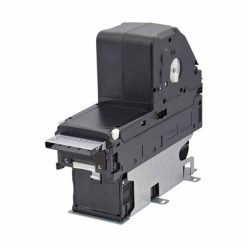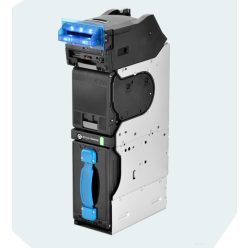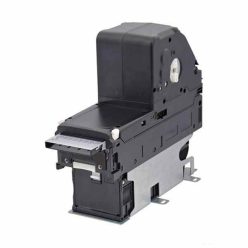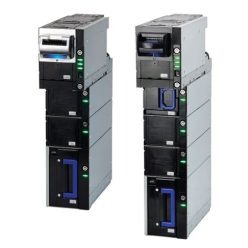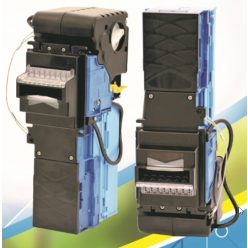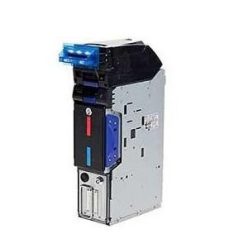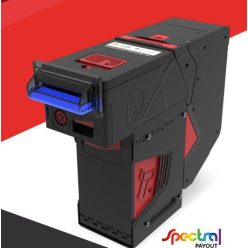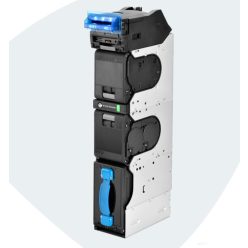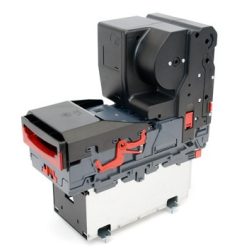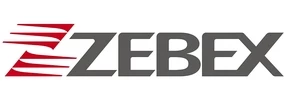Industrial banknote recyclers for self-service kiosks and payment terminals
In the banknote recycler category you will find industrial note acceptor and payout units that combine validation, secure storage and change dispensing in a single module. The range includes compact recyclers that return a single denomination, two-cassette units handling two denominations and higher-capacity systems designed for several denominations, so you can cover everything from small kiosks to high-traffic parking and ticketing machines. Typical products include a slim, single-cassette recycler for tight spaces, a two-cassette module recycling two key denominations and a large-capacity unit capable of holding around 800–1000 notes for intensive applications, all supporting industrial interfaces such as ID003 or MDB.
Banknote recyclers – intelligent note acceptance and change management in one device
Banknote recyclers are advanced cash handling modules that accept, validate, sort, store and dispense banknotes within a single device. While a conventional banknote acceptor only takes notes in and passes them to a cashbox, a recycler stores one or more denominations in dedicated cassettes and uses these notes again as change. The key benefit is that the machine needs less idle cash to operate, cash collections and refills can be less frequent and transactions remain fast and transparent. In this category you will find compact recyclers that handle a single denomination, two-cassette units that recycle two different denominations, high-capacity systems designed to hold around 800–1000 notes and slim modules optimised for narrow kiosk housings.
Typical applications for banknote recyclers include self-service parking payment machines, public transport ticketing kiosks, coin and banknote changers, self-checkout lanes, deposit terminals and closed cash management systems. A compact, single-cassette recycler is ideal for smaller kiosks or local payment points where returning change in a single medium-value denomination is sufficient. Two-cassette recyclers that handle two denominations are a good match for more complex machines where optimising change and handling several note values is required. Large-capacity recyclers with extended cashboxes are designed for very busy locations such as multi-storey car parks, parcel lockers or front-of-store self-checkouts, where downtime and frequent service visits must be avoided.
Technology benefits – less cash in the machine, faster transactions
One of the main advantages of banknote recyclers is that a portion of the cash inside the machine is continuously reused instead of just filling up a cashbox. Instead of every accepted note ending up in storage, selected denominations are routed into recycling cassettes and offered back as change. This reduces the float required to keep the machine running and lowers the number of cash refill and collection visits, which can save significant cost in high-volume environments. At the same time, the recycler tracks every note that enters or leaves the system, making it easier to reconcile cash levels with accounting data and to investigate disputes if they arise.
Modern recyclers support several industrial interfaces such as ID003, MDB or ccTalk and come with multiple security levels, counterfeit detection algorithms and firmware update options. Within this category you will find modular building-block recyclers for flexible integration, high-speed two-denomination units for demanding transaction volumes and robust, high-capacity devices originally designed for banking or retail but also suitable for integration into unattended kiosks. This gives you considerable freedom to match performance, capacity and form factor to your application.
Operating conditions and maintenance
The downside of banknote recyclers is that they are more complex than simple note acceptors, so they cost more and require more regular maintenance. There are more moving parts and sensors, and they are more sensitive to dirt, worn or damaged notes and poor operating conditions. You need to respect the specified temperature and humidity ranges, ensure stable power, protect against dust and schedule regular cleaning. On the software side, it is also important to manage firmware updates and configuration changes so that the recycler remains compatible with future note series and security features over the lifetime of the machine.
Because of this complexity, local service capability and spare part availability are critical. It is worth working with a supplier that has many years of experience in cash handling, provides clear integration guides, offers support in your language and operates a service centre within easy reach. Access to stock, scheduled deliveries, flexible shipping and customs options, post-delivery payment terms and invoicing in multiple currencies all help you plan the full project life cycle from design and rollout through to long-term operation and upgrades.
FAQ – banknote recyclers
How is a banknote recycler different from a simple note acceptor?
A simple note acceptor only takes notes in and passes them to a cashbox without returning change. A recycler stores selected denominations in dedicated cassettes and uses them again as change, so the system needs less float and cash refills are required less often.
When does it make sense to use a multi-denomination, multi-cassette recycler?
Multi-cassette recyclers are recommended when you want to return change in more than one denomination, optimise note and coin usage and reduce the amount of coins needed. They are particularly useful in self-checkouts, parking payment machines and busy ticketing kiosks.
What extra capabilities do industrial recyclers offer compared to non-industrial devices?
Industrial recyclers are designed for 24/7 operation, offer higher acceptance rates, advanced counterfeit detection, detailed diagnostics and long-term spare part availability. They also support standard industrial interfaces and are easier to integrate into complex cash management systems.
What should I pay attention to during maintenance?
Regularly remove paper dust and dirt, clean the note path and rollers, check moving parts and follow the manufacturer's recommendations for firmware updates. This reduces jams and unexpected outages and helps keep transaction times consistently low.

